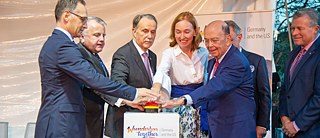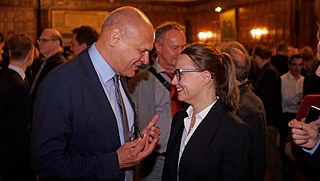Year of Germany in the USA
Our American Friends

A warm late summer evening on German Unity Day in Washington, DC offered Federal Foreign Minister Heiko Maas the perfect setting to open the Year of Germany in the USA in the garden of the German Ambassador’s residence. “For us Germans, America is and will remain our most important partner outside Europe.”
Work must be done on this partnership, Maas continued, saying, “That means creating new networks and promoting bonds that we have neglected for too long.” For since Donald Trump’s presidency at the latest, German-American friendship is no longer taken for granted. When the US president talks about Germany, it’s mostly about trade tariffs and defense spending. Trump and his constituents seem to have little interest in time-honoured alliances.

German-American friendship
And to take account of this fact, the Goethe-Institut, as project leader, has focused not only on the liberal cities on the east and west coasts, but also on the nation’s interior. Until the end of 2019, around 200 partners from both countries will participate; more than 1,000 events in all 50 US states are on the agenda. The Federal Foreign Office is funding this unique project with support from the Federation of German Industries.

Dialogue with US civil society
It is therefore only natural for the Goethe-Institut in the USA to expand its projects beyond its locations in Boston, Chicago, New York, Washington, San Francisco and Los Angeles. So Goethe Pop Ups will be opened in cities such as Houston, Kansas City, Seattle and Minneapolis with the aim of reaching those Americans in particular who have no relationship to Germany, or not beyond the clichés of German beer and football, with actions and events in the fields of education, culture and business.

An important initiative at the right time
What can such dialogues achieve in this new era? Johannes Ebert, secretary-general of the Goethe-Institut, sees it this way: “Educational and cultural programmes in particular are effective means for addressing difficult issues in the German-American relationship and to achieve a common understanding. ‘Wunderbar Together’ is therefore an important initiative at just the right time.”
